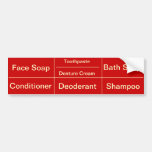Medicaid is designed for low-income people age 65 and older. (Certain people younger than age 65, particularly those who have disabilities, can also qualify for Medicare, but they must meet certain criteria.)
Many people feel that because they own a home or have some assets that they can't qualify for Medicaid help with their nursing home and doctor's bills. The truth is there are a variety of assets people can own and still qualify. It's just a matter of knowing the rules, and making a plan to meet those requirements.
Here are the asset limits for those applying for Medicaid. They include:
- Cash – You can possess $2,000 cash that will not be counted as an asset in determining your Medicaid eligibility.
- Home – There is a $500,000 exclusion toward your home, meaning that if your home is valued at $500,000 or less at the time of your application, your home is excluded as an asset. Some states use the higher permitted exemption of $750,000.
- Car – Up until recently, you could exclude only one car at a value of $4,500 or less, however that law has been changed. Now, one automobile of ANY current market value is excluded on your application.
- Funeral and Burial Funds – If you have a pre-planned funeral or memorial arrangement, the entire value of that plan is excluded. If you do not, a separate bank account that contains $1,500 toward funeral expenses can be excluded. If you have pre-purchased burial plots, you can exclude not only the costs of the plot for the applicant, but for the entire family, and still be eligible for Medicaid.
- Property – According to federal law, any real or personal property that is essential to self-support, regardless of value or rate of return, is excluded. That could include farms, rental properties and other real estate investments that generate income necessary for self-support. For rental income, however, the property must generate at least 6 percent of its value annually in order to qualify for the exclusion.
- Life Insurance – Only the cash value of a life insurance policy owned by the applicant is counted, thus, all term policies are ignored.
Dementia Signage for the Home
__________________________15% Off All Orders!
USE CODE: HPOTTERSBDAY
Ends August 3, 2013

















